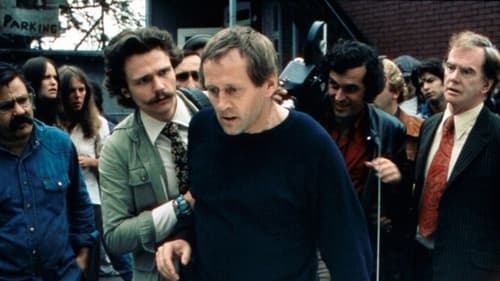
Production Manager
Dennis Potter a television dramatist talks about his work, politics and his fears for both.

Invité au dîner
Pierre is a Montreal photojournalist who returns from Nicaragua to find that his ten-year menage a trois is over. Haunted by his mid-life crisis, he becomes obsessed with trying to find out why his two lovers, Sarah and David, have left him.

Writer
In this socially conscious drama, a TV journalist begins investigating a large factory that has been threatening the health of the children who live in the town's poorest, most polluted section. Because of his investigation, he and his family are threatened by company thugs. He gets no help from his TV station as they are loathe to tangle with big business.

Director
The sponsors of a drug-rehabilitation center stage a robbery to maintain funding of the facility, but the loot turns out to be syndicate-owned.

Director
A hockey player in a small town begins to lose his grip on reality, and starts to believe that he is a gunslinger in the Old West.

Director
A poor bush worker refuses to sacrifice his dignity to provide his family with a better life.

Director
In this feature documentary, American community organizer and writer Saul Alinsky goes to war against the conditions that keep the poor in poverty. The film shows how he helped Black ghettos in the United States find an effective, non-violent method of fighting for their rights.

Director
Indigenous youth, led by Duke Redbird, argue their ideas against the blunt pragmatism of American activist and writer Saul Alinksy. Author of the book “Rules for Radicals”, Alinsky is widely considered the father of community organizing who spent his life advocating for improved living conditions in poor communities across the United States. In this impassioned debate, the young activists question the corrupting influence of power, and ask why Indigenous people cannot live traditionally and peacefully on the land. Alinsky responds, “You have got to be part of the world in order to change it. You are not going to make any changes by staying in your corner.” In Alinsky’s view, equality only happens when the disenfranchised have the strength to show the ruling powers that it will be more costly for them to withhold it. Encounter with Saul Alinksy offers fascinating insights into a conversation about power and activism that has lasting resonance today.







